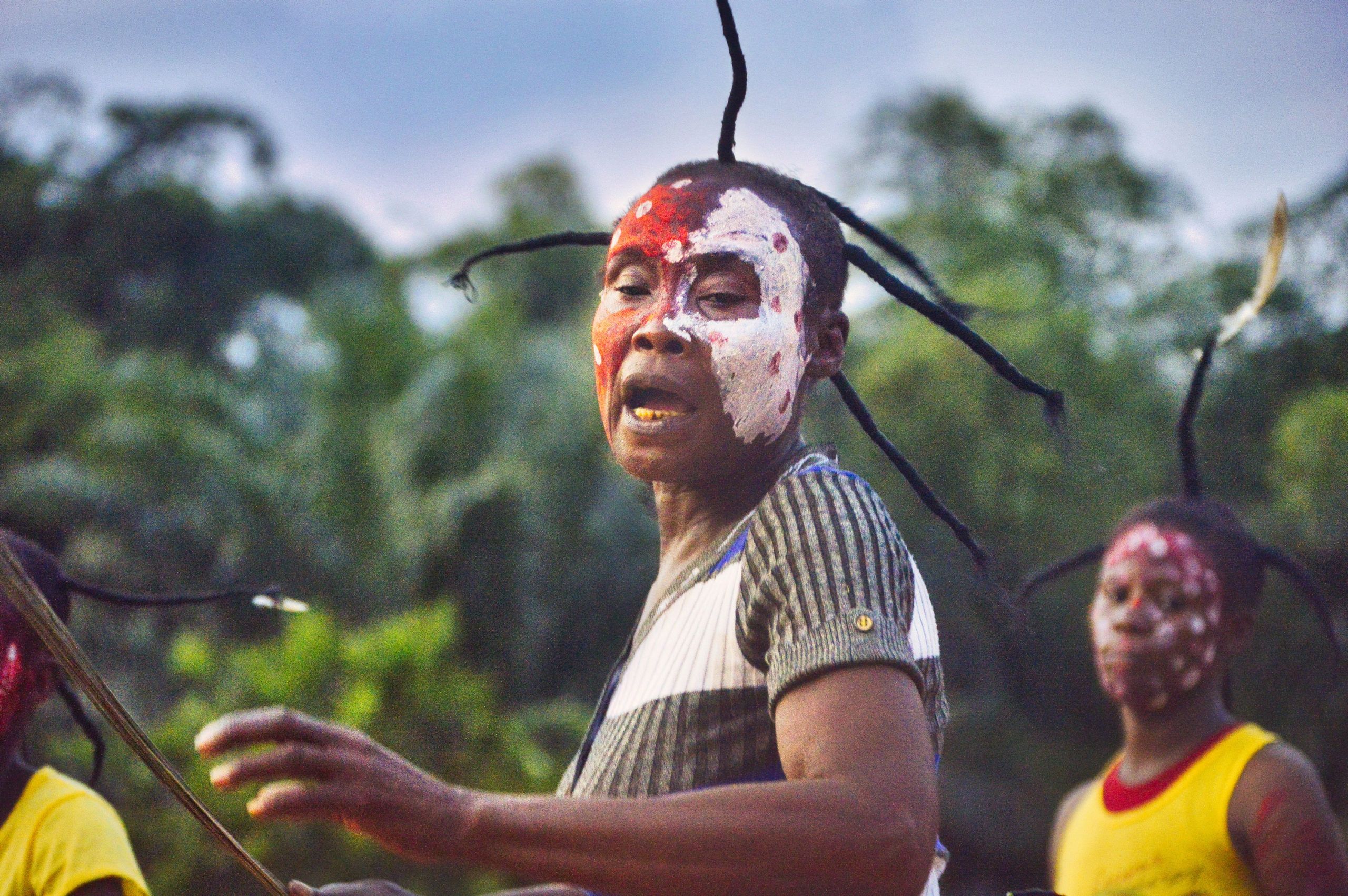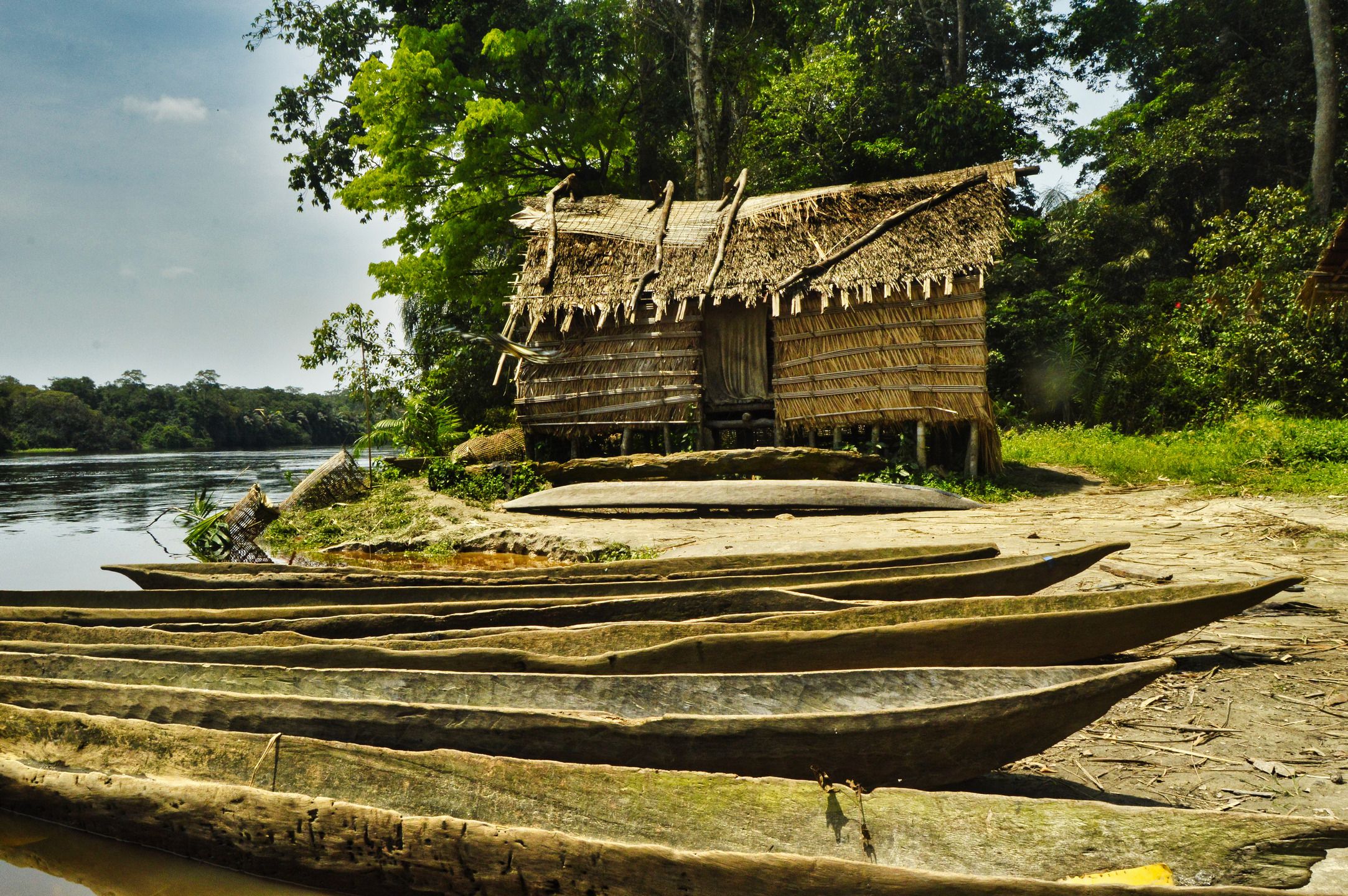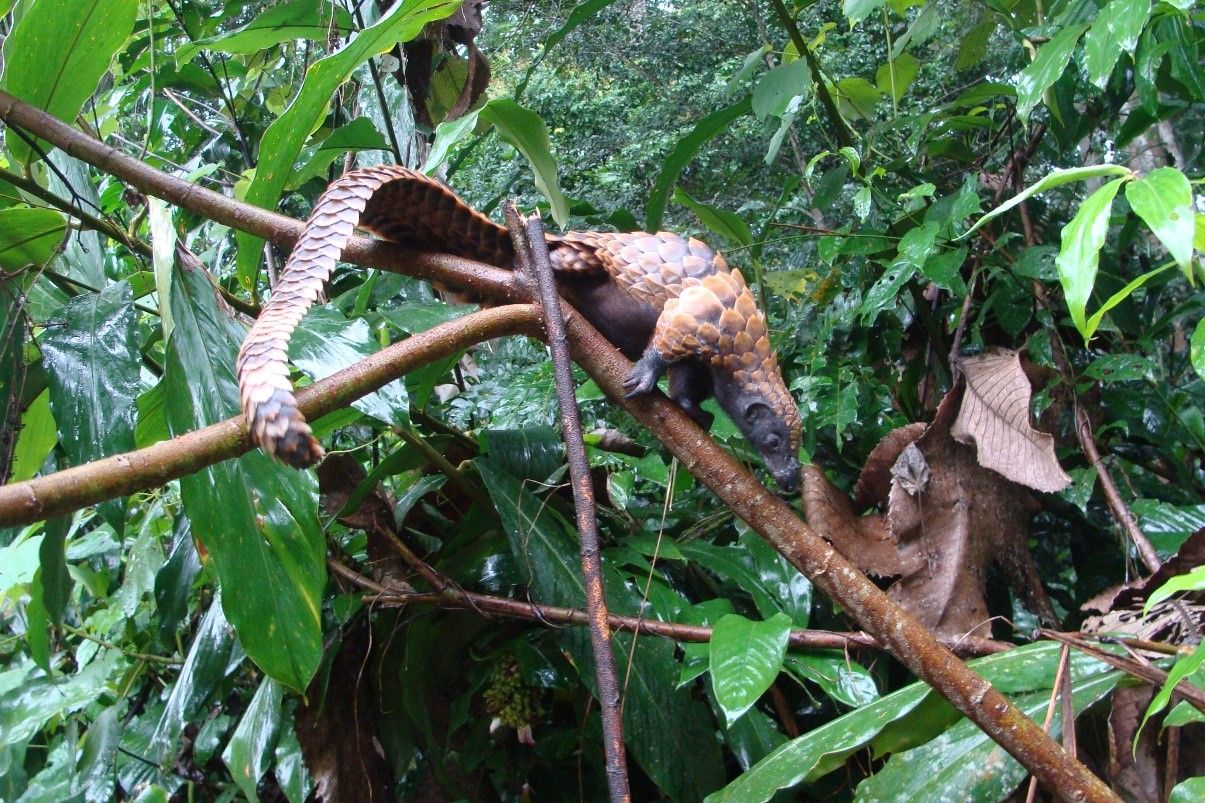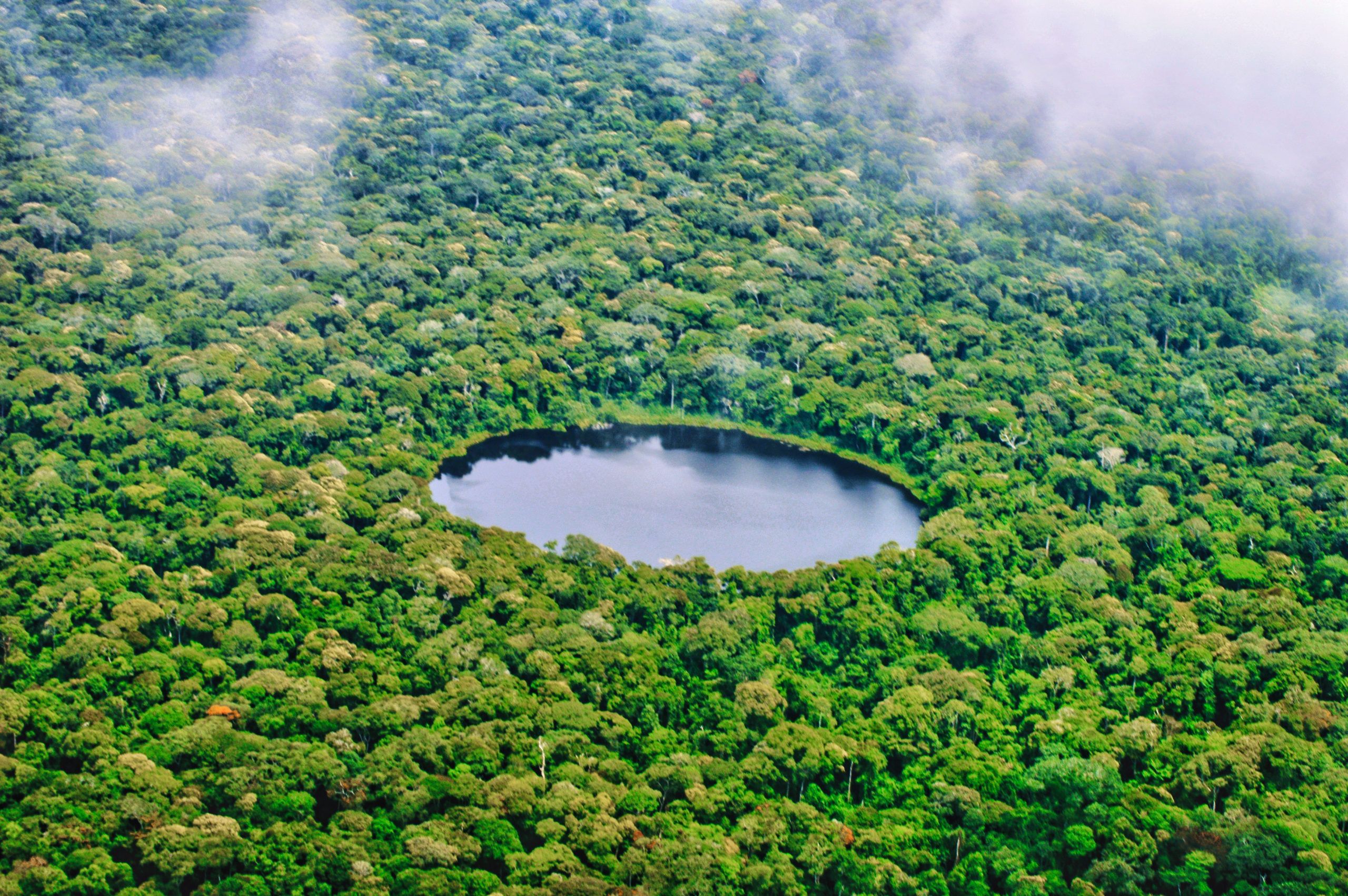Visit of the Delegation of the European Union to Salonga
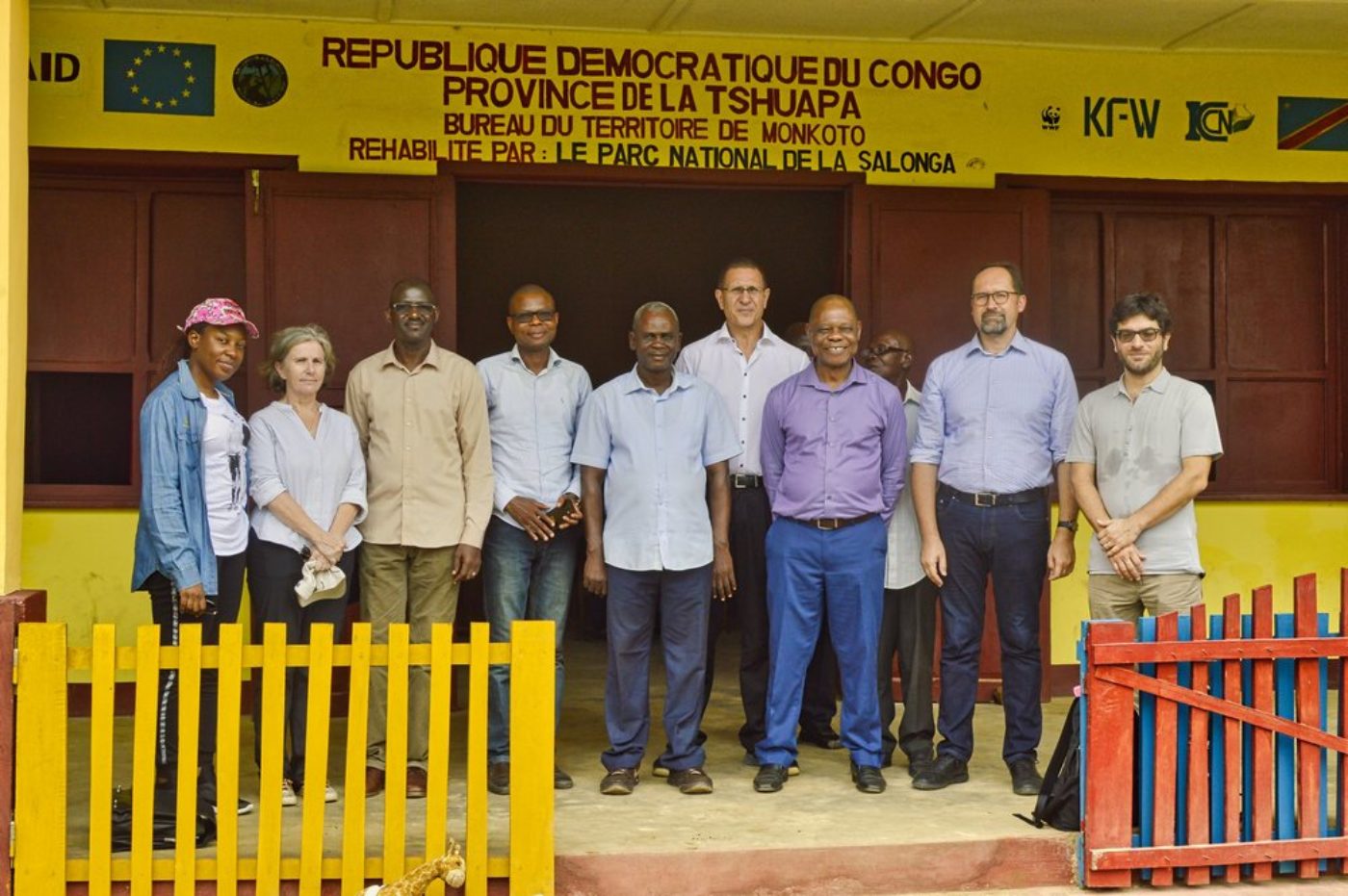
From 13 to 17 April, the Head of Cooperation of the Delegation of the European Union (EU) to the DRC, Mr Laurent Sillano, and his team visited Salonga National Park and the activities implemented as part of the PARCCS programme (Programme Agricole Rural et de Conservation du Complexe de la Salonga). The programme is coordinated by the World Wide Fund for Nature (WWF) and so Mr. Martin Kabaluapa, WWF DRC Country Director, led the delegation.
The overall objective of the programme that is financed by the 11th European Development Fund is to contribute to the protection and enhancement of the environmental capital of Salonga National Park and its periphery while contributing to a positive economic impact for the local populations.
The visit began in Monkoto, the park’s headquarters, where the delegation met with political and administrative authorities, members of local development committees (CLD), and the local civil society. A visit to some of the project’s infrastructure realisations – a manual water pump as well as a rice storage and processing warehouse – took place. The delegation also visited the park at the elephant clearing in Békalikali and was able to get to know the working conditions of eco-guards and the management team.
After an exchange with the provincial governor and members of civil society associations in Boende, the capital of the Tshuapa Province, the delegation traveled about 100 km south to Watsikengo.
Watsikengo is home to one of the six stations of the Salonga National Park and is also the place where the non-governmental organisation (NGO) ISCO, one of the implementing partner organisations of PARCCS, has set up a coffee trading and processing centre, which was inaugurated last September by the Governor of Tshuapa.
The coffee processing centre is part of a wider strategy launched by ISCO for the rehabilitation of perennial crops, such as coffee, cocoa and oil palm, in the region.
The visit ended in Dekese in the Kasai, where the NGO OXFAM, the second major implementing partner, is mentoring people in various agricultural production and marketing activities.
After four years of implementation, the European Union’s support for PARCCS has, among other things, enabled the strengthening of the park’s management capacities, a support for infrastructure and economic activity, the protection of the forest as a natural habitat for animal species, the awareness raising of communities on the ecological importance of the park – former poachers even became actors in the promotion of the park – and the gradual presence of agricultural products on local markets.
The EU Head of Cooperation had a generally positive impression after his visit, but highlighted that the programme alone could not meet all existing needs. Reiterating the EU’s interest in the conservation of Salonga National Park, Mr. Sillano thus emphasised the efforts that local authorities and communities would need to make themselves to compliment the contributions from external partners.
